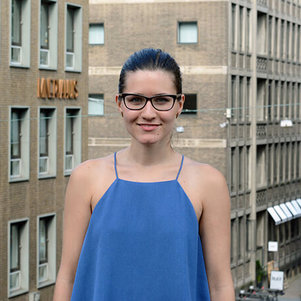DESIGNSCAPES
Building Capacity for Design enabled Innovation in Urban Environments
How can we generate societal impact through design? The H2020 project DESIGNSCAPES aims to ignite the transformative power of design for sustainable and responsible innovation in European cities. With a maturing design discipline, increasingly gaining popularity outside the design domain, the focus is no longer on designing meaningful products and services only, but also on facilitating processes of systemic change; creating societal impact through design.
‘Many design proposals aiming for mission-driven innovation, do bring new perspectives in a particular context, but face difficulties in the actual implementation or in demonstrating impact,’ IDE project lead Ingrid Mulder says. ‘Even, successful design solutions that are well-embedded in one urban context, cannot easily be replicated to other cities or institutionalized to scale their impact and make a systemic change’.
As the only project awarded within the call “CO-CREATION-02-2016 - User-driven innovation: value creation through design-enabled innovation”, the DESIGNSCAPES project has the specific mandate to distribute 1.5 million euros of its 4 million grant to a hundred local design initiatives, ranging from feasibility studies to scalability proofs. Next to the direct financial support to creative consortia (of citizens, researchers, practitioners, innovators, and policymakers) to develop, prototype and ultimately scale their idea, DESIGNSCAPES offers a capacity building program to demonstrate the potential of Design enabled Innovation as an example of innovation in which the involvement of users in the process is key and the resulting innovation is more successful thanks to co-creation.
Using a systemic research-through-design approach, DESIGNSCAPES gathers insights in non-linear, multi-level, and networked design-enabled innovation processes to demonstrate, on the one hand, the impact of design-related policies and programmes, and on the other hand to develop a transferable methodology for building capacity to achieve a better uptake, further enhancement and upscaling, of Design-enabled Innovation throughout Europe. In doing so, the project fosters linkages between research, policy, and practice, while contributing to a stronger position of Design on the European agenda, as a key methodology to address the sustainable development goals.
The DESIGNSCAPES consortium, coordinated by ANCI Toscana, consists of 12 partners from 10 Member States (associations of municipalities, university departments of architecture and design, business schools, service centers, civil society organizations). Industrial Design Engineering, TU Delft, leads the development of the capacity building programme.

Ingrid Mulder
- +31 (0)15 27 85637
- I.J.Mulder@tudelft.nl
-
Room C-3-070
"Linking people through design."





